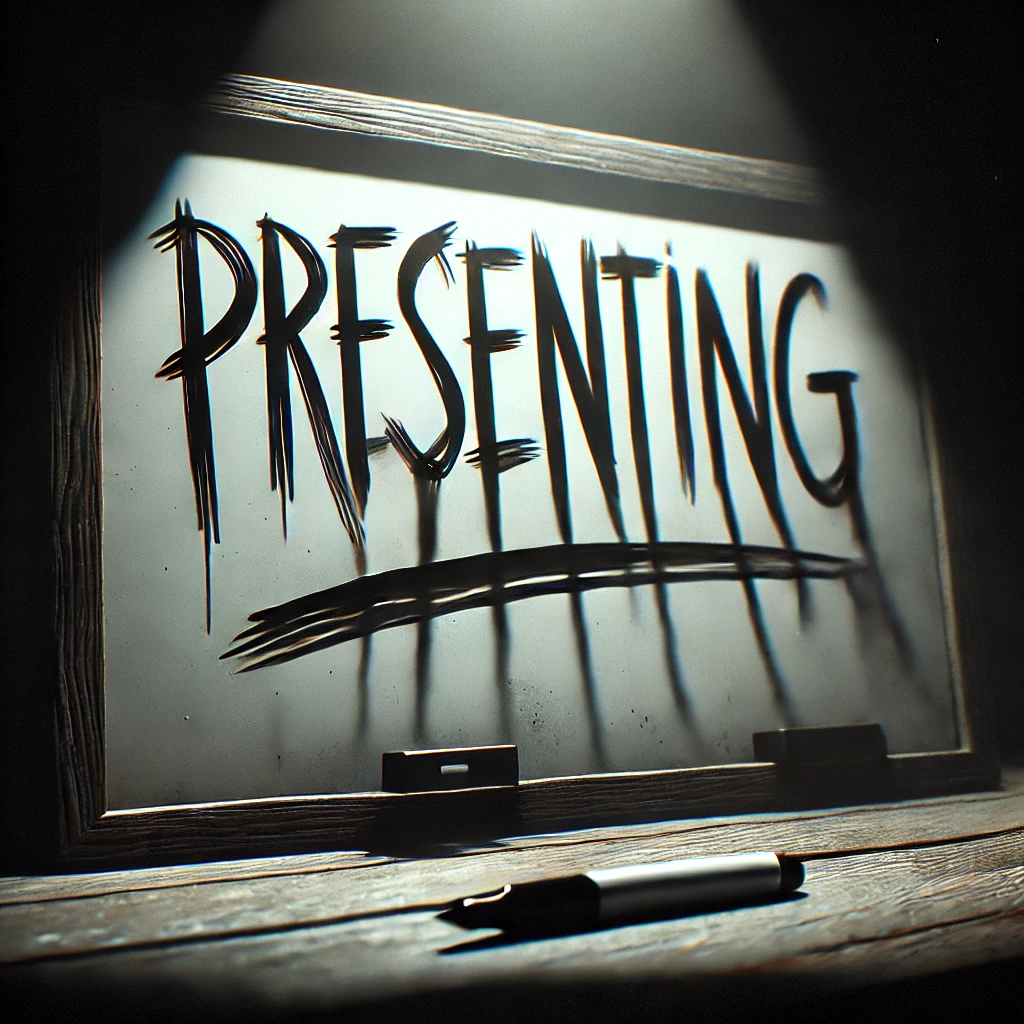x min read

Introduction
Presentation skills tackles two skills in particular: communication and speech.
Presentations makes it obvious to your grader whether you’re an advanced, poor, average, or excellent speaker. It’ll tell them how good you are at communicating your ideas to a crowd of people, comfortably. Even for language classes, the purpose of presenting still remains (and is even arguably more significant). Though presenting in front of a crowd sucks, and takes a lot of guts, it’s possible to overcome it – and pretty easily too.
Of course, it’s easier said than done. And besides, when everyone tells you the same basic, and repeating advice (get good sleep, prepare, research, etc.), there seems to be not much hope as for what you can do.
I get that.
No one ever taught me how to improve my communication and presenting skills. I had to learn those all on my own – knowing that it would be equally as difficult.
This post is what I wish I knew, and actionable advice that you can implement today to improve your presentation skills by 100, 200, or even 500%.
Typical Advice You’ll Receive
You may have heard the following before:
- Practice, Practice, and Keep on Practicing
- Use visual aids
- Make eye contact
- Speak clearly and loudly
- Dress professionally
Garbage.
Presentation Advice You Wish You Knew Yesterday
First, I’ll give you factual, and proven evidence-based advice regarding presentation skills. After, I’ll provide the tips that worked for me.
Evidence-Based Suggestions
- The “Presentation Cafe” Approach: Summarized, this method involves -instead of presenting to a large collection of people- presenting X to a smaller group of people (3-4 people ideally). This makes it easy for you to repeat, and practice. Preferably, if you’re really afraid of presenting and even freeze in front of a large crowd, you can try presenting in front of people you’re comfortable with (people you joke around with, and hang out with in or outside of school). Do this again and again, and you will, over time, get better at talking and presenting a topic to other people of your age.
- TIP: For me, when I was in high school, and before that too, presenting in front of an adult, or several adults was absolutely scary. So please, present in front of people your age. It makes it infinitely easier, and you’ll be thankful that you followed this tip later upon implementation.
- Focus on audience engagement: This means, instead of delivering a bunch of information, make students ask questions, develop curiosity, and really involve themselves over what you’re presenting.
- You aren’t as good as you can be: Understand that you aren’t perfect, you will make mistakes, and that’s it. You have to analyze how others present, and recall how you present. If you seriously are searching for improvement, find what went wrong, why you didn’t earn 100%, and why someone else might have.
- Emphasize non-verbal communication: Hand gestures, some eye contact, good body language are all great.
Personal Suggestions
- Relax a little: To implement this tip properly, I really, really suggest following tip #1 (from the evidence-based section). Here, I suggest that you just lean into it a little. Don’t take it too seriously, and relax for just a moment. Although it’s not as easy as I’ll describe, act like your crowd doesn’t care. Why? Because no one actually cares. You are presenting something that people will easily forget in 20 minutes, at most. Stop acting and beating yourself up because you mistakenly stuttered, or forgot to include a piece of evidence because you just wanted to get it over with. Trust me, no one really wants to stand up there and present something to a bunch of strangers, pretty much.
- Remember this, be confident in what you present, and don’t over-study anything (by that I mean, wing it), and you’ll do so much better than you’ll imagine.
- Be confident, but not too confident: If you prepared, and studied X, be confident. But don’t be too confident, because you might just end up doing a horrible job.
- Prepare, but don’t over-prepare: Although it might sound a little confusing, you really shouldn’t be over-preparing for a presentation. You should, by all means, study the material you’re soon to present, but please, do not obsess over it. Obsession will make everything you did pointless once every fiber in your being won’t stop shaking.
- Go First, If You Dare: Going first does a lot more good mentally and psychologically for you than you think. You’ll get it over with first, be the test subject, know that no one else dared to do the same, and create your own testimony. I can’t really put it into words, but going first doesn’t make presenting feel as heavy in your stomach as does going second, third, or last (of all). It’s risky, but it can help more than you think.
- Positive Outlook: You aren’t going to present perfectly. Somethings will go wrong. That’s inevitable, and so just deal with it. If you want the ideal time to present, don’t want to go first, haven’t effectively prepared yet, and could really use an extra couple of minutes for preparation, then go second or third. Those are the best times to go from what I’ve seen.
- But again, most of all, have a positive outlook at the end of the day. As long as you memorized a good quantity of the information presented, didn’t read off the slides the entire time, put as much as you could into your own words, and tried, that’s all that matters.
- Comfortability & Memorization: These are by far the most important. You need to be really comfortable with presenting the material you’re covering, but also comfortable with speaking to new people, to lots of people, and all at one time. You need to -with practice- get better at presenting and communicating information that people haven’t heard of before, and present it well enough that they remember 1-2 small details at least, recall something unique about your presentation, and serves as a class example. That’s the gold in the pot of silver. Probably not the best metaphor. 2nd, memorization, is also equally as important. PLEASE, AND PLEASE be comfortable with the information you’re presenting (even if you’re almost reading it all from a screen), and know at least 80% of it by heart. It doesn’t take very long to memorize concepts (and break them down into sizeable chunks) nor facts, so take just 15 minutes of self-studying at home as practice. An added 5 or 10 minutes also helps, but nothing more than that.
- If you can lock down on these two, you’ll do exceptionally well; and best of yet, score really well, finish quickly, and most notably of all; not freeze.
For Language Classes, Please Read
If you’re taking a language class, of course, you’re being graded on how well you know the material, but also your ability to think and reason. So, you need to draw a line between the two. They are both different, and should be treated differently.
Therefore, here are my side tips for language class presentations:
- You are mainly being graded on your speaking ability. Graders want to see how well you can -in a real world situation- walk into a crowd, speak comfortably to a collection of people, and communicate exactly what you’re thinking. Practice, and when you do (at home), speak normally in that language. If you want to say something, but find yourself saying it back in your primary language, search up that translated word in a language dictionary of some sort (or through Google Translate).
- Speak slowly. Don’t speak quickly, and let your brain take its time to break ideas down and be formed into words and sentences. Rushing through that won’t help you, and will just cram your brain with too much information that it just goes blank. That’s a costly mess-up that’s usually irreversible in terms of damage.
- Don’t wing it. If you aren’t naturally fluent in the language, and are actually taking the class to learn how to speak the language, you have to prepare. Unlike other core classes where presentations don’t need as much prioritization, these sort of presentations actually hold some of value (in some way), and walking into class without a clue as for what you’re gonna say won’t help.
Besides that, if applicable, use the same tips provided above, and you should expect to do pretty well.
Conclusion
Presenting in front of a group of people your age isn’t very hard; and you need to remember that. Recall that as long as you prepare, are comfortable, and have tested and analyze – you can’t do bad. It’s really hard to.
No one is saying presenting is easy, or that anyone wants to do it; but what I am saying is that if you put a little bit of effort, you can do well. You can, by all means, get the grade you want. And most definitely, you can serve as the class example and blow everyone’s expectations away (though nobody really cares).
If you liked this post, and are interested in more study-related posts, feel free to check out this post here.
Thanks for reading, and we hope to see you again soon.



